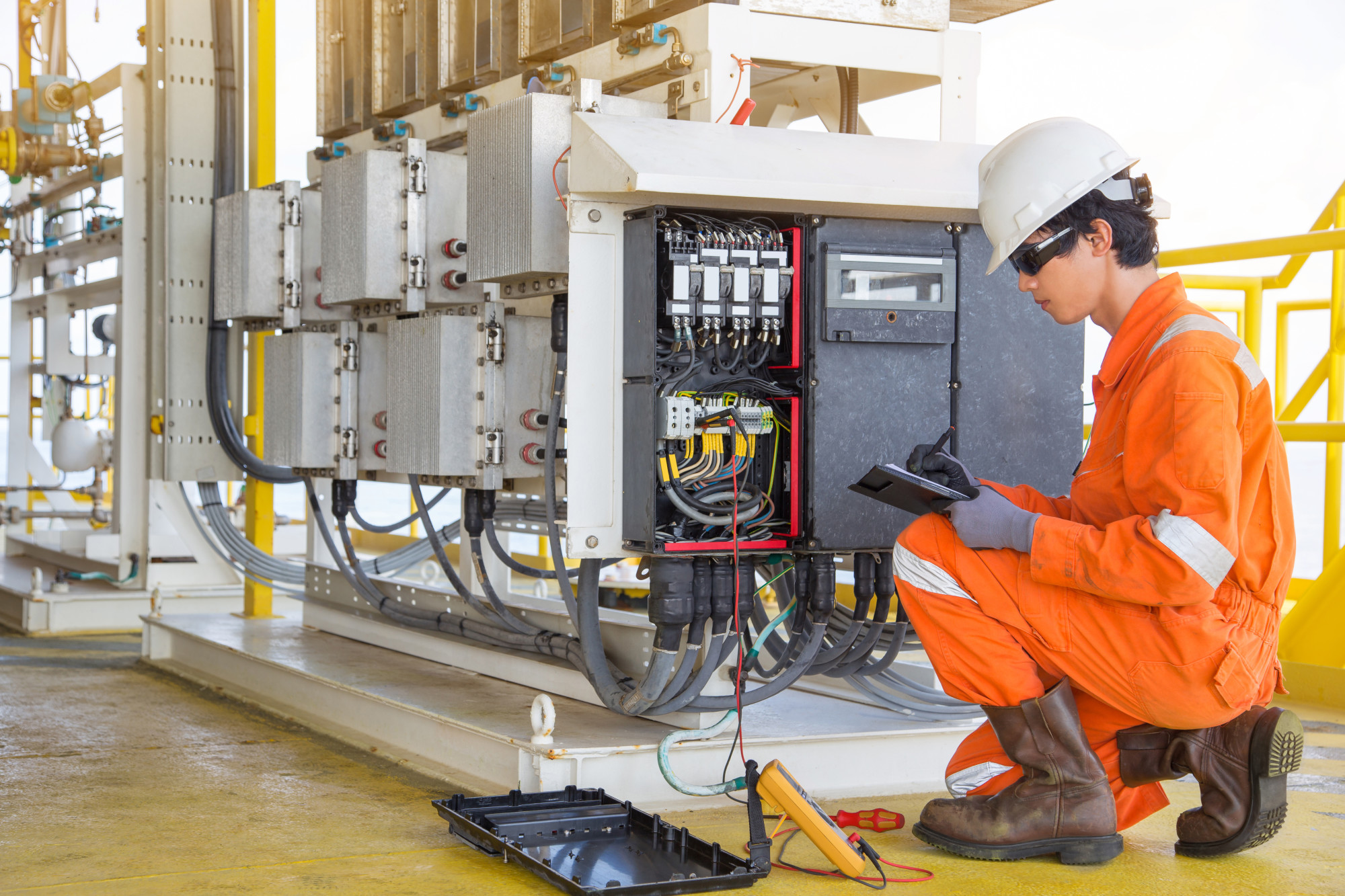
Electrical and instrument technician measuring voltage of thermo electric generator and record reading value to maintenance sheet for annual inspection at offshore oil and gas remote platform.
A generator is a significant investment for homeowners, providing power and ensuring your family’s safety during blackouts. An energy generator that runs for 650 hours a year can last for 30 years before finally calling it quits. However, it can last much longer if you take good care of it.
Generator maintenance isn’t rocket science, but a few pointers to help you get the most out of your generator wouldn’t hurt. If you need a little help keeping your generator in tip-top shape, we’re here to help.
Today’s post is the ultimate guide to maintaining your generator for longevity and maximum efficiency.
Replace the Air Filters
One of the simplest and most important generator maintenance tips for all types of generators is to replace the air filters regularly. Air filters prevent dirt and debris from entering the generator and damaging internal components.
You can buy air filters at any hardware store or online. If you decide to clean the air filters instead of replacing them, do so gently to avoid tearing them. Also, make sure you dry them out completely before putting them back.
Run It Every Few Months
Letting your generator sit idle for too long is detrimental to it. Try running it every few months to keep the battery charged and prevent any corrosion that can occur when a generator isn’t in use.
As a rule of thumb, run the generator for at least an hour every month. Doing so will help the generator start up quickly when you have a power outage or when a storm hits.
Take Care of Old Fuel
Old fuel is the number one reason for most of the problems you encounter with your generator. For generators that stay idle most of the year, ensure you add a fuel stabilizer to the gas. Doing so will help prevent the formation of varnish buildup and also prevent the oil from breaking down.
However, adding a fuel stabilizer doesn’t guarantee that you won’t have issues down the line. To be safe, empty your fuel tank and carburetor every 12 months and add fresh oil.
Stock Up on Fuel
For those fond of running their generators hard, keep a fresh stock of oil at hand. You’ll need to change the oil a lot more frequently than irregular generator users. Smart homeowners will always have a sufficient stock of extra oil for convenience’s sake.
If you’re spending too much on oil, you might want to purchase a Generac generator. Generac generators are known for their insane efficiency and durability.
Check the Spark Plugs
One of the major reasons your generator won’t start sometimes is a bad spark plug. Checking the spark plugs is a relatively easy generator maintenance task that you can do yourself.
Remove the spark plug wires and use a spark tester to check for sparks. If there’s no spark, it’s time to replace the plugs. Alternatively, you can try cleaning the plugs and see whether that solves the problem.
Proper Generator Maintenance Simplified
The information above should make generator maintenance a cakewalk. By following these simple tips, you can ensure your generator lasts for decades and runs at peak performance.
Don’t forget to check out the other posts on the site for more informative content.
Leave a Reply